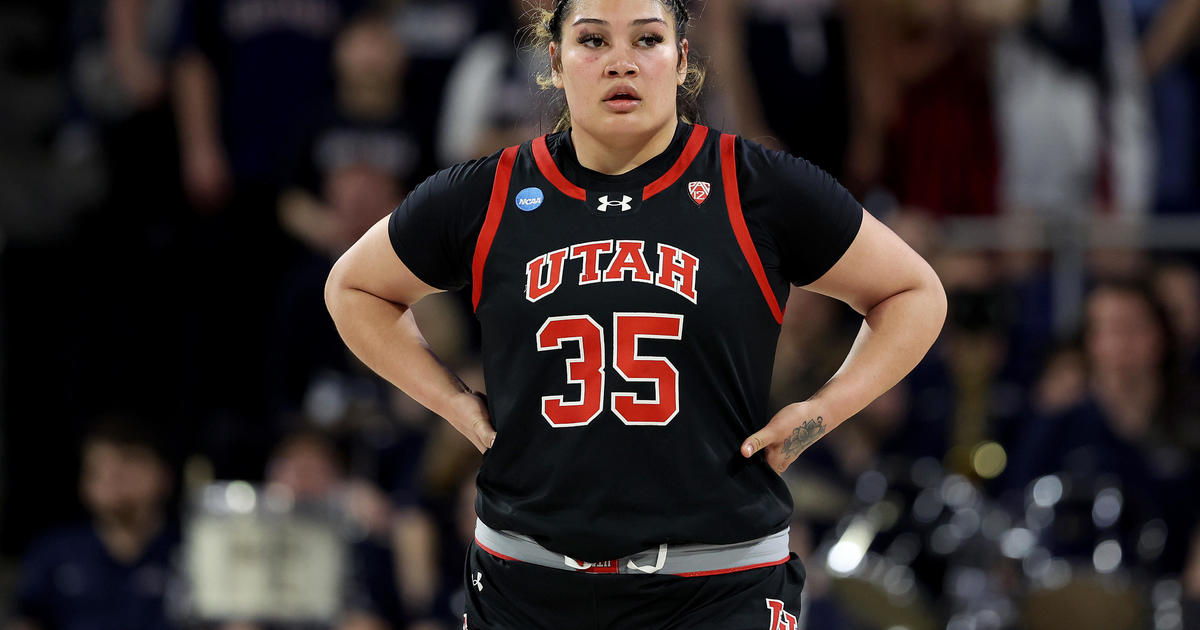Griak Recalls His Time In WWII, Before Gopher Track
MINNEAPOLIS (WCCO) -- Roy Griak is best known as the long time coach of the Gopher men's track team but before that he was a wide-eyed teenager in Duluth called to serve his country in World War II.
For better than three decades, Gopher track athletes ran for coach Griak.
"The joy is watching them come in as freshman and see what they are four years, five years later as adults, really," Griak said.
He has a bobblehead in his honor and each year there is a meet held named after him. But it doesn't mean much to him.
"I don't think about that too much. It's an honor and I appreciate it, but I don't think about it, it's just a competition," Griak said.
What he does understand after 87 years on the earth is that he's lucky. Griak was drafted into World War II right out of Duluth Morgan Park High School in 1942.
"The first I knew, after high school, three months later after basic training, I was in New Guinea. Probably just started to shave a couple weeks before that. But being in New Guinea, in the jungle coming from Minnesota was quite a change for an 18-year-old kid," he said.
It didn't take long for him to realize he was in a war and it was serious. It was, at times, overwhelming.
"I remember coming in there with the troops on a ship, it was a converter freighter, a fruit ship. We landed, when we got there at night, into New Guinea," Griak said, "we were being strifed by the Japanese Air Force. I got up on deck and I saw all that fire going every which way, you know, I said it looked like Fourth of July."
He adjusted to life as he knew it in a place he did not know. They were all in the same place, the same situation -- kids who came to serve the country and some who never came home.
"We had a, we called them shafe tail lieutenants, from West Point. He was there one day and he got killed the next morning. He was only there one day," said Griak.
The things he saw are things you never forget. You can't out live some memories, like coming up a river bank.
"As we approached the crest of the hill, there were three heads on the top of the hill, peeking at us with no gunfire whatsoever. But the heads were chopped off at the neck and the moral tribesman in that area to this day have never been conquered," he said. "They weren't conquered in World War I."
Griak said they had done that to show them a signal -- a signal that they were their friends, because the heads were that of Japanese soldiers.
What kept him motivated was someone back home who he knew was waiting for him.
He did come back. He had survived and he was appreciative to see U.S. soil.
"Coming back under the Golden Gate Bridge in San Francisco, on a troops ship, that was the most wonderful thing that I could possibly imagine," he said.
If there was a prize waiting, it came to him and others in the form of the GI bill. It was a prize that again changed his life and the lives of his friends.
"The GI Bill, it gave us that opportunity and almost every one of us, my buddies, went to school," Griak said.
And he remembers this during his tenure overseas he was motivated to come home to someone very special.
"You're there because you're supposed to be there more or less. You get drafted because your country drafted you and you're there because of what happened at Pearl Harbor and so on and so forth," he said. "But really, the only thing that I myself, personally, the only thing that I thought about was my mother and getting back."



